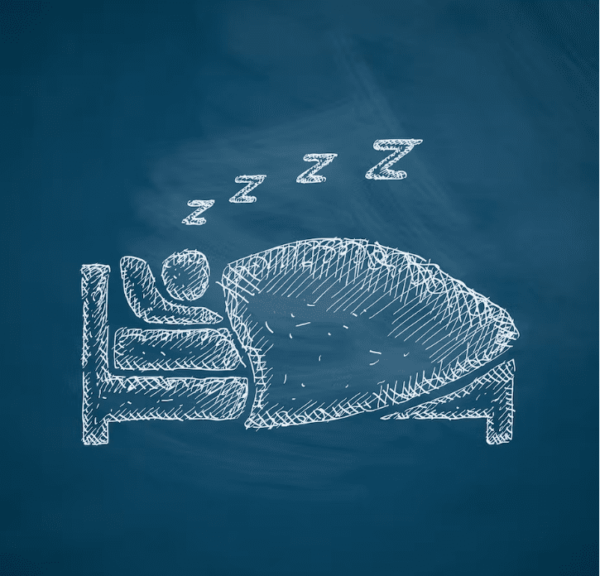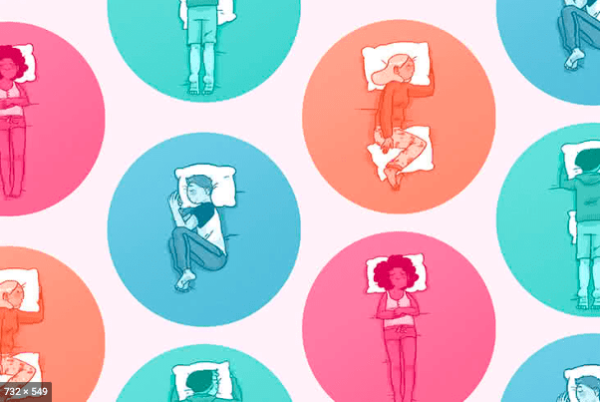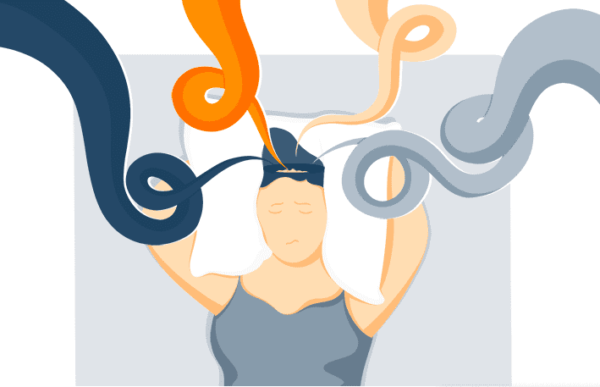Have you ever thought about the effects of sleep and healing? Recent research shows sleep is essential to our mental and physiological health. Most of us are not getting enough sleep. The CDC reports over a third of the US population suffers from sleep disturbances and now considers insufficient sleep to be a public health problem. Adequate sleep was previously viewed as a luxury, and reduced sleep was often equated with increased productivity. Attitudes have shifted based on recent research to prioritize quality sleep and sleep is now recognized as a positive health behavior.
Sleep is not a period of physiological inactivity; it is a period of recovery that is critical to proper functioning of all body systems. Throughout the day there is a balance between catabolism (degradation) and anabolism (renewal). Periods of wakefulness enhance catabolism while periods of quality sleep promote anabolism. Quality sleep promotes immune and cognitive function, cardiovascular and neurologic health, tissue healing, pain modulation, and learning and memory. Whether you are recovering from surgery, have an acute or chronic injury, or experience chronic pain, sleep can aide in your healing and recovery. Today we will focus on how sleep and healing go hand in hand by detailing how sleep affects pain modulation and promotes healing.

Let’s begin by reviewing the sleep cycle. There are five stages of sleep: wake, N1, N2, N3, and REM. Each night we progress through four to five cycles of sleep. A complete sleep cycle lasts approximately 90 to 110 minutes. N1, N2 and N3 are known as non-rapid eye movement of sleep. In this period, we experience the deepest levels of sleep.
During deep sleep your body repairs and regrows tissues, builds muscle and bone, and strengthens your immune system. Deep sleep occurs more predominately at the beginning of the night and wanes as REM sleep becomes the predominant stage towards the second half of the night.
POSITIVE EFFECTS OF QUALITY SLEEP AND HEALING

- Upregulates immune cells
- Increases secretions of endocrine hormones:
- Growth hormone: an anabolic hormone that increases they synthesis of protein which stimulates growth, cell reproduction, and cell regeneration
- Prolactin: promotes epidural repair and wound healing
- Melatonin: promotes mucous epithelium healing and wound healing
- Leptin: accelerates proliferation, differentiation/function, and migration of cells to promote wound healing
- Downregulates the body’s stress systems
- Positively inhibits the secretion of cortisol, a stress hormone that negatively affects healing
- Increases levels of nitrogen which promotes protein synthesis needed for healing
- Increases the rate of healing compared to wakefulness
NEGATIVE EFFECTS OF INSUFFICIENT SLEEP AND HEALING:
- Increases production of pro-inflammatory cytokines which decrease the body’s ability to heal damaged tissues
- Leads to a net loss of nitrogen resulting in lower levels of protein needed for optimal tissue healing
- Reduces production of anabolic hormone needed for cell division necessary for tissue regrowth and healing
THE RECIPROCAL RELATIONSHIP BETWEEN SLEEP AND PAIN PERCEPTION:
- Physiologically, sleep regulation and pain modulation are controlled by similar neural mechanisms
- Insufficient quality sleep increases your sensitivity to pain
- High perception of pain negatively affects quality sleep
- Less total time asleep
- Delays onset of sleep
- Increases waking throughout the night
- Decreases sleep efficiency
- Insufficient quality sleep can cause hyperalgesia altering the way your body generates and produces pain signals
- Lower pain threshold and higher pain sensitivity
- Something that used to be perceived as uncomfortable or unpleasant is now perceived as painful
- Sleep deprivation can counteract analgesic effects of pain medications

It is clear quality sleep is significantly more than just a luxury, it is essential. Quality sleep promotes your body’s natural healing mechanisms and leads to an increased rate of healing. Additionally, sleep and pain have a reciprocal relationship. Insufficient quality sleep alters our perception of pain. Higher levels of pain cause increased sleep disturbances. It is a vicious cycle.
If you are interested in learning how to improve your sleep hygiene I recommend Physician Assistant Michelle Hall’s informative blog post titled, Sleep Habits – 8 Simple Ways to Overcome Sleep Challenges. She outlines the stages of sleep and then provides helpful tips on how to improve your sleep.
If you are interested in learning more about your body’s circadian rhythm and how to optimize your sleep and wakefulness patterns, check out this informative podcast by Dr. Andrew Huberman, Perfect Your Sleep.
Sources:
- https://academic.oup.com/ptj/article/97/8/826/3831304
- http://www.cdc.gov/features/dssleep/
- https://experiencelife.lifetime.life/article/the-healing-power-of-sleep/
- https://www.sleepfoundation.org/how-sleep-works/what-happens-when-you-sleep
- https://www.ncbi.nlm.nih.gov/books/NBK526132/
- https://www.ncbi.nlm.nih.gov/pmc/articles/PMC1443671/pdf/bmjcred00529-0006.pdf
- https://www.ncbi.nlm.nih.gov/pmc/articles/PMC5082544/




